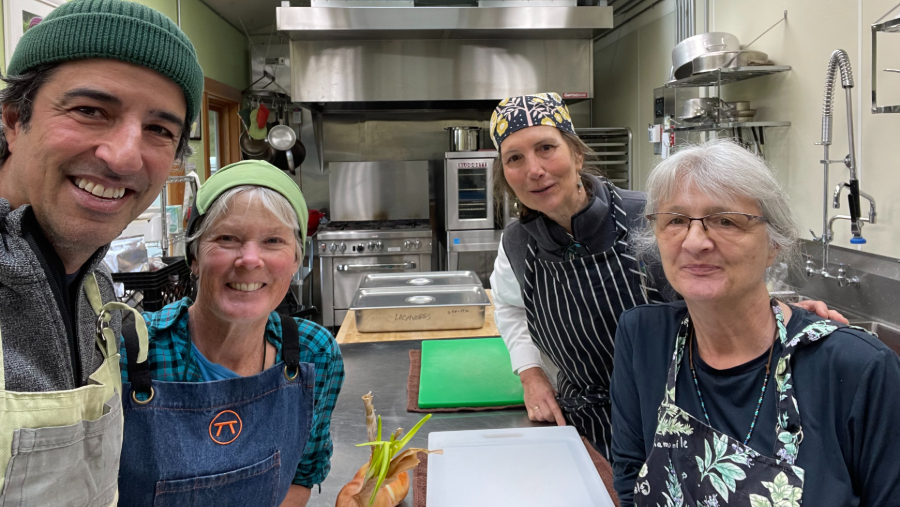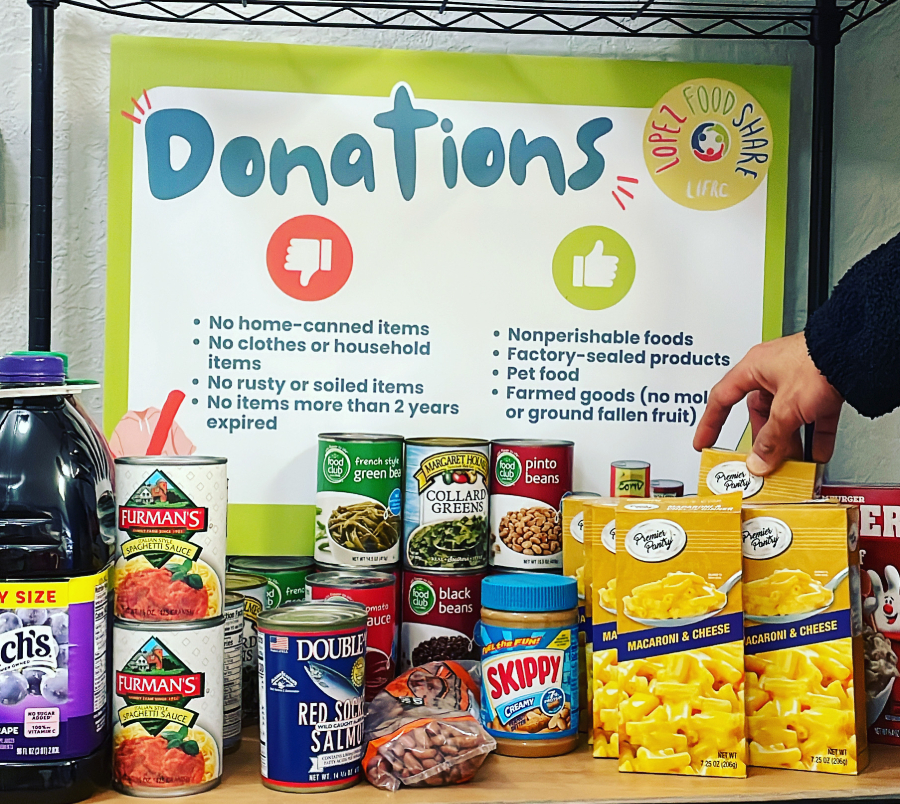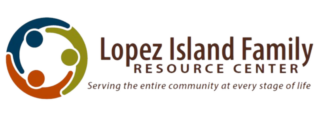
Powered by the People
At the heart of the Food Share is a community-powered network of passionate volunteers who believe in feeding people with care and dignity. People like Christine Langley, a grower, cook, and community builder who leads the Lopez Locavores’ monthly meal prep team. With donated, gleaned, and locally grown ingredients, the Locavores have made 80-100 ready-to-eat meals each month to Food Share participants.

“I’m always trying to get vegetables into things,” Christine says. “Our goal is to take food that might otherwise go to waste and turn it into something delicious and nourishing.”
Whether it’s a hearty soup made from leftover Thanksgiving turkeys or a yellow split pea dahl packed with spices and local carrots, Christine and the Locavores are helping us rethink what community nourishment looks like.
They’re not alone. Every week, dozens of volunteers sort, stock, prep, welcome, and uplift. Their time, energy, and kindness are what make this work possible.
This is what people-powered food security looks like: local hands, shared harvests, and a whole lot of heart.
A New Chapter: Our Nutrition Policy
At the Lopez Island Family Resource Center, food is more than sustenance—it’s about access, dignity, and long-term well-being. Early last year, we surveyed Food Share clients to better understand their needs: what kinds of foods they’d like to see more of, what health concerns they’re navigating, and what access looks like in their daily lives. With their input—and with the support of the American Heart Association and the Washington Food Coalition—we created a Nutrition Policy that aligns with our values and theirs. To read the full policy, click here.
Why does it matter?
Some people have asked us “Why do we need a policy?” And that’s a really good question.
Put simply, we believe everyone deserves to live in a community where healthy food is the norm—not the exception.
According to the CDC, people living in food-insecure households face a higher risk of chronic conditions like diabetes, hypertension, and heart disease. A nutrition policy is a promise to not just feed our neighbors—but to feed them well.
A consistent approach to nutrition helps us create supportive environments for all—especially those navigating chronic conditions or economic hardship. It also helps us model positive choices for youth in our programs, promoting energy, focus, and well-being.
And just like the food itself, this policy is meant to grow. It’s a living document, shaped by the people it serves. Got recipes, ideas, or stories to share? We’d love to hear from you. Contact Pedro at pedro@lifrc.org for more information on how you can collaborate.
So, what are the guidelines?

We will be using the nationally recognized Healthy Eating Research (HER) Guidelines to evaluate the food we purchase and distribute. These guidelines help us prioritize “choose often” foods that are nutrient-rich and culturally meaningful:
✅ Fresh fruits and vegetables
✅ Proteins
✅ Dairy and non-dairy alternatives like soy or oat milk
We will also be sourcing more foods grown here in Washington, especially from organic, women- and minority-owned farms. We want the foods we offer to nourish, heal, and reflect the diverse communities we serve.
What can you donate and when?
Our pantry is most in need of shelf-stable items that align with HER Guidelines and reflect our clients’ preferences.
These include:
✅ Low-sodium beans and canned veggies
✅ Whole grains like brown rice and oats
✅ Low-sugar, whole-food snacks
✅ Asian and Hispanic/Latino food items
Please avoid:
🚫 Sugary drinks and cereals
🚫 Expired or heavily processed foods
🚫 Items high in sodium, saturated fat, or added sugars
Donation Drop-Offs:
Tuesdays & Wednesdays | 10am–2pm | Back door of the Food Share
To learn more about donor guidelines, click on the button below.
Volunteer Appreciation Week
This week we are celebrating the many hands and hearts that power this work—from those who prep meals to those who greet every guest with a smile.
You make this work joyful, and we are deeply grateful.
And to our dear friend and longtime volunteer Mary Wondra—
We believe, wherever you are, you’re already making new friends, spreading love, and giving those magnificent hugs you shared with everyone. We miss you, Mary.
A big Wondra hug to you all.
